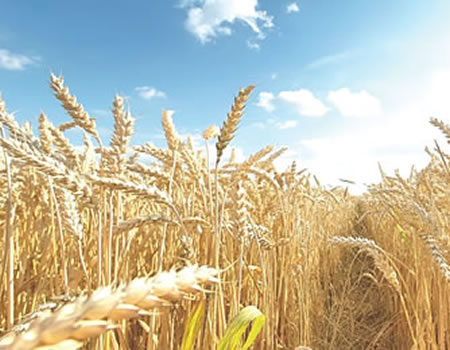The Central Bank of Nigeria (CBN) has initiated plans to drastically reduce the current sum of about $2 billion, which the country spends on wheat importation.
The CBN hopes to achieve the feat through its transformation of the wheat value chain in Nigeria, which is the third most consumed grain in the country after maize and rice.
Governor of the Central Bank of Nigeria (CBN), Mr Godwin Emefiele who disclosed this, pointed out that, of the estimated five to six million metric tons of wheat consumed annually in the country, Nigeria produces about 63,000 metric tons.
As a result of the shortfall in production, the country spends over $2 billion annually to import wheat in order to bridge the demand-supply gap.
ALSO READ FROM NIGERIAN TRIBUNE
FALSE! Yoruba Not An Official Language In Brazil
Marburg Virus: What You Need To Know About Disease Recently Detected In West Africa
Governor Emefiele said: “Taking a cue from our success in the rice value chain, we commenced the “Brown Revolution” last year as our mantra for the transformation of the wheat value chain in Nigeria. Wheat is the 3rd most consumed grain in Nigeria after maize and rice.
“It is estimated that we only produce about 1 per cent (63,000 mt) of the 5-6 million mt of wheat consumed annually in Nigeria. This enormous demand-supply gap is bridged with over $2 billion annual importation of wheat.”
The CBN’s optimism of its success in wheat transformation is a result of a similar feat that is recorded through the Anchor Borrowers’ Programme (ABP) in the rice value chain, which saw a drastic reduction from 1.3 million metric tons of rice Nigeria imported from Thailand in 2014 to 2,160 metric tons as of the end of 2021, thereby saving a huge amount of the US dollars the country would have spent in importing the commodity.
Again, beyond increasing the national output of rice from about 5.4 million metric tons in 2015 to over 9 million metric tons in 2021, the productivity per hectare of the smallholder farmer has also significantly improved from about 2.4 metric tons per hectare in 2015 to between about 5 metric tons per hectare in 2021, this, the CBN plans to repeat in the wheat transformation.
WATCH TOP VIDEOS FROM NIGERIAN TRIBUNE TV
- Relationship Hangout: Public vs Private Proposals – Which Truly Wins in Love?
- “No” Is a Complete Sentence: Why You Should Stop Feeling Guilty
- Relationship Hangout: Friendship Talk 2025 – How to Be a Good Friend & Big Questions on Friendship
- Police Overpower Armed Robbers in Ibadan After Fierce Struggle






